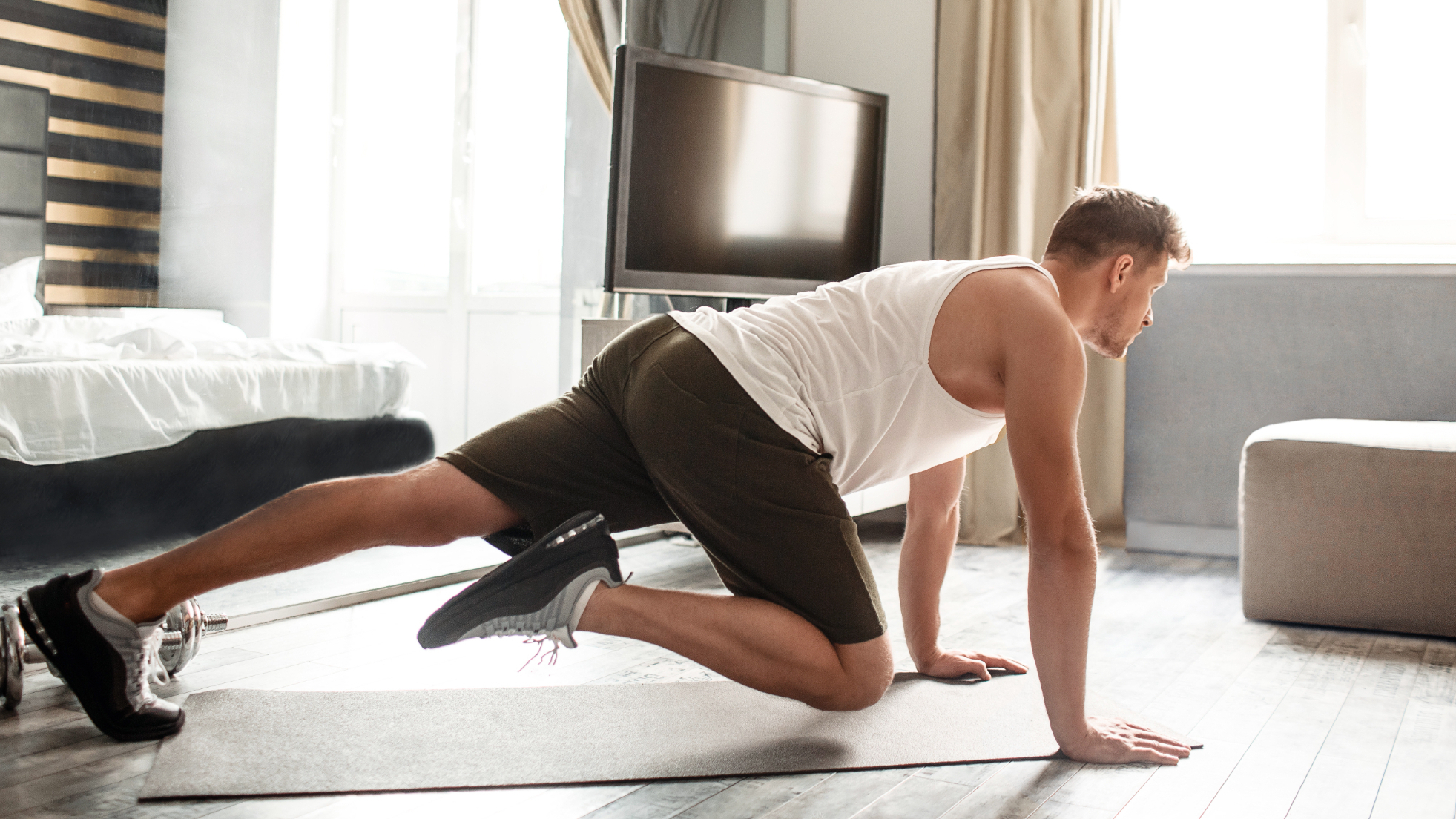
If you struggle to find time to work out, exercise snacking could be for you. But what is this efficient fitness phenomenon, and why should you consider making it part of your weekly routine?
Exercise snacking is the idea that, rather than setting aside an hour to run or go to the gym, you can fit a few five-minute workouts into your day to boost your overall activity levels without any equipment (except maybe a yoga mat for comfort).
We’ve spoken to Mitch Raynsford, a strength and conditioning coach at digital coaching platform P3RFORM, to get the lowdown on how these bite-size workouts could revolutionize your health habits, particularly if you’re often pressed for time.
Benefits of exercise snacking
“Exercise snacking involves incorporating short bursts of physical activity throughout the day, similar to how you might snack on small portions of food between meals,” explains Raynsford.
“These exercise ‘snacks’ are quick, convenient and can be performed anywhere, making it easier to fit physical activity into a busy lifestyle.” Some exercise is better than none, and that’s the first major benefit of exercise snacking.
Yet, just because you’re only tackling five-or-so minutes of activity at a time, that doesn’t mean these can’t have a considerable cumulative effect.
“These short bursts of exercise across the day can improve cardiovascular health and support increased energy levels, enhanced mood, improved mental focus, increased metabolism. and better overall fitness,” says Raynsford.
Five-minute exercise snacking workouts
Raynsford has shared five exercise snacking routines for you to try, whether you’re looking to exercise for happiness, develop a regular workout habit, or try something a bit different.
“All these exercises can be modified to suit individual fitness levels and preferences," says Raynsford. "Always prioritize safety, listen to your body, and consult a health professional before making large changes in your lifestyle and activity levels.”
1. Five-minute HIIT session
Complete the circuit below, focusing on maintaining good form and resting as little as possible between movements. After you’ve finished all five exercises, rest for one minute then repeat the sequence. Continue until you’ve finished three rounds.
It's a similar technique to a high-intensity HIIT workout for fat loss, so if you enjoy this short routine, then you have extended options if you want to raise your heart rate, improve your cardio fitness, and boost your metabolism.
- 10 squats
- 10 incline push-ups
- 10 alternating lunges (on each leg)
- 20 mountain climbers
- 10 single-leg glute bridges (on each leg)
2. Desk circuit
This one is great if you’re working from home — the only equipment you’ll need is your chair. Set a five-minute timer and complete the circuit below as many times as possible. Focus on your form, and feel free to change the exercises and number of repetitions to suit your level.
- 10 chair squats
- 10 triceps dips from chair
- 10 standing calf raises
- 10 seated leg raises
3. Staircase power

This workout couldn’t be simpler. “Ascend and descend a flight of stairs as quickly as possible, repeating for five minutes,” says Raynsford. “Focus on using your leg muscles and increasing your speed [on the way up].”
4. 10-minute walking breaks
“Take short brisk walks during your breaks or lunchtime,” says Raynsford. “Aim to walk for at least 10 minutes, picking up the pace and swinging your arms for added intensity.”
And while the best walking shoes make a great investment if you plan to spend a long time outside, you don't need special shoes or any equipment to get all of the benefits of walking.
5. Three-move Tabata routine
Tabata training is a lot like high-intensity interval training (HIIT), but with a fixed time structure, where you alternate between 20 seconds of work and 10 seconds of rest for each exercise.
For this workout, pick three high-intensity exercises (Raynsford suggests jumping jacks, burpees and running on the spot) then perform them for 20 seconds each, resting for 10 seconds between them.
Repeat this sequence twice for a session that last for four minutes and 30 seconds.
What is an exercise snacking workout?
“These workouts can vary in duration depending on the time available and how often in the day you want to exercise, but typically they last anywhere from five to 15 minutes,” Raynsford says.
“The idea is to engage in short bursts of intense activity that elevate your heart rate and challenge the muscles.” As a result, he says you can introduce healthy habits into your day which fall under the exercise snacking umbrella.
“Simple actions like taking the stairs instead of the elevator, parking further from your destination, doing a few exercises during a work break, or even engaging in household chores can count as exercise snacking. The goal is to find opportunities to move more and make physical activity a part of your daily routine.”
These everyday activities are sometimes known as non-exercise activity thermogenesis (NEAT). Raynsford says this is activity you “wouldn’t classify as working out or formal exercise” but still works your body and improves your fitness.
Who should try exercise snacking?
There are no entry requirements for exercise snacking — it's an efficient way to get some movement into your day that anyone can do. However, Raynsford says it'll be most beneficial to people who are short on time but want to some exercise.
“It's especially beneficial for those with sedentary jobs or lifestyles, a busy work and family life, or people who are just starting their fitness journey,” he says. “Exercise snacking allows them to accumulate physical activity in smaller increments, making it more achievable and sustainable.”
Five minutes of anything sounds achievable. But, as Raynsford says, it soon adds up: “Six bouts of five minutes’ worth of movement equates to 30 minutes a day and two and a half hours a week.”







